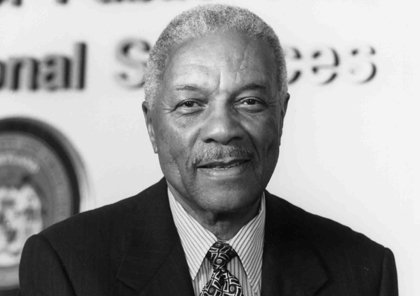BALTIMORE — Bishop Lee Robinson, Baltimore City’s first African American police commissioner, died Monday, January 6, 2014 at the age of 86.
Robinson was a pioneer in Baltimore’s police department, climbing his way through the ranks to become the City’s first black commissioner in 1984. He served in that position for three years.
Robinson also served as secretary of the Maryland Department of Public Safety and Correctional Services from 1987 to 1997 followed by three years as secretary of the Maryland Department of Juvenile Justice from 2000-2003.
When Robinson joined the police department in 1952 the role and scope of African American officers was severely restricted. African American officers were not allowed to patrol white neighborhoods or use patrol cars.
“We have lost a true pioneer in the history of the Baltimore Police Department,” said Police Commissioner Anthony Batts. “His legacy is one of service and continues to be a source of inspiration for officers today. I sit here in this position as a result of his strong leadership as a trailblazer. I’m humbled by this giant of a man, a police leader.”
City Council President Jack Young said Baltimore suffered a deep loss with Robinson’s passing. “Commissioner Robinson was a pioneer in the field of public safety and Baltimoreans benefited from his tireless efforts to improve our city. His successes inspired countless men and women to dedicate their lives to public service.”
Baltimore City Councilwoman Mary Pat Clarke remembered Robinson as a strong department leader who went on to serve in civic life as well. “He broke the racial barriers in the police department and he did it with strength and great dignity,” she said. “He was a very strong leader in that department and very highly respected. He will be missed.”
Commissioner Robinson was one of the founding members of the National Organization of Black Law Enforcement Executives (NOBLE).
NOBLE is recognized as one of the nations largest and most effective public service organizations dedicated to serving the law enforcement needs of African American communities.
Robinson’s enduring legacy is further enhanced by the public justice institute at Coppin State University that bears his name.
